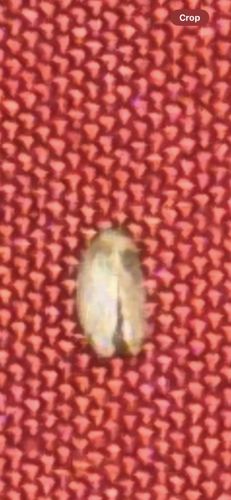Case-bearing Clothes Moth
Scientific Name: Tinea pellionella
Order & Family: Lepidoptera, Tineidae
Size: Adults: 9-16 mm wingspan; Larvae: up to 10 mm

Natural Habitat
Indoors, especially in undisturbed areas like closets, attics, and storage areas. Larvae create a silk case and carry it with them.
Diet & Feeding
Larvae feed on natural animal fibers like wool, fur, feathers, silk, felt, and sometimes blends containing these materials. Adults do not feed.
Behavior Patterns
Adults are weak fliers and prefer darkness. They are often found scurrying. They lay eggs on suitable food sources. Larvae build and live within a silk case covered with bits of the material they are eating; they drag this case with them as they move and feed. The pupa also develops inside this case.
Risks & Benefits
Risks: Can cause significant damage to clothing, carpets, upholstery, and stored textiles made of animal fibers. Benefits: No known direct benefits to humans or the ecosystem, primarily considered a pest in human environments.
Identified on: 9/9/2025